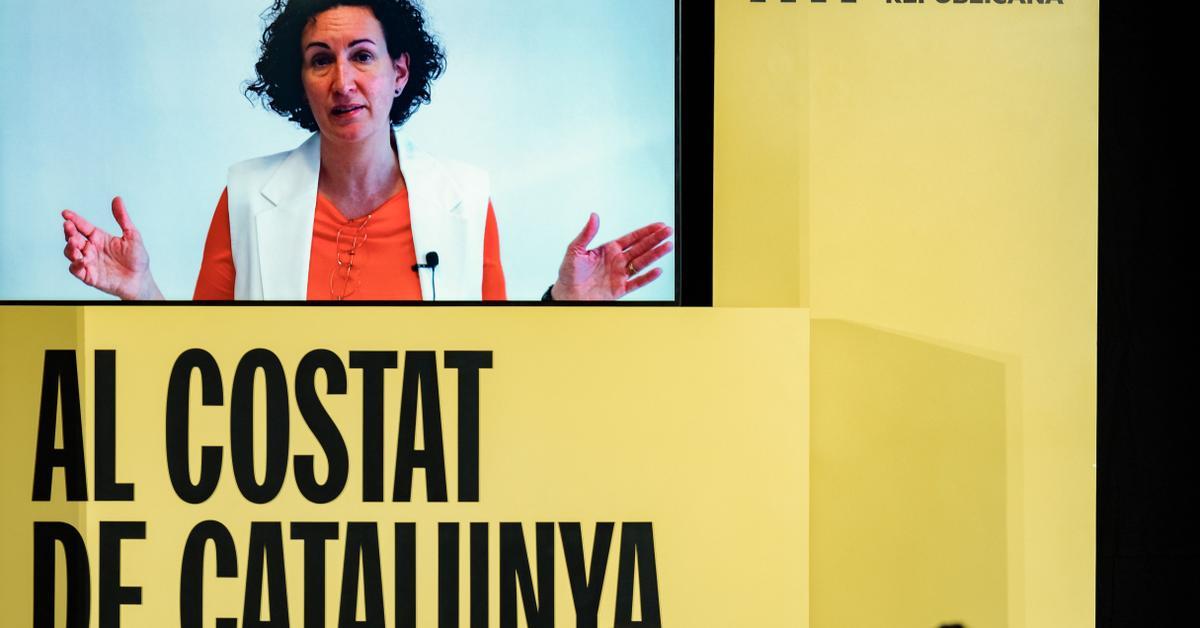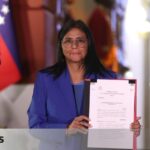
When a PSC delegation led by the party’s spokesperson in Parliament, Alícia Romero, met on June 6 in Geneva with Marta Rovira, they came away convinced that the meeting had gone very well and that ERC was in favor of prioritizing the negotiation with the socialists.
But not only them had come to the Swiss city. As El Periódico de Catalunya reported, the day before the person who had met with the general secretary of ERC was Carles Puigdemont. Accompanied by Jordi Turull, who has regained good communication with Rovira for some time, they held a meeting that Junts described as “important.”
The relationship between Puigdemont and Rovira had been limited until that Wednesday to the exchange of messages. Seeing each other face to face and talking about the future of the independence movement was a relevant step despite the fact that in ERC they continue to distrust good words and appeals to the unity of the post-convergents. In any case, the first result of that meeting has been that Josep Rull is the new president of the Parliament.
The socialists found out only a few hours before the vote of the Catalan Chamber Board that ERC was going to support the Junts candidate. Both the PSC and the Comuns, who with their spokesperson, David Cid, at the helm, had been in the Swiss city on the same day as the Junts delegation and also to meet with the Republican general secretary, had conveyed to ERC their willingness to facilitate the presidency of the Parliament. It seemed good to them that the chosen one was Pere Aragonès’ number two, Laura Vilagrà. But in ERC, those in favor of resigning from the position (the second highest ranking in Catalonia) won to prevent the first photo of the legislature from being with the PSC. In this way, the goal was for Junts since they also gave him the ability to weaken both Salvador Illa and the Republicans themselves in the negotiations for the investiture.
ERC’s decision unnerved Illa because she interpreted that once again the Republicans’ legs had trembled before Junts. In the PSC they have received contradictory messages from the ranks of ERC: they have agreed on the Table with Junts while there are republican leaders who not only assume that they will allow Illa to be president but have even told them that they would like some positions in the Generalitat who are related to ERC, names of the so-called ‘sottogoverno’, could also continue in the Catalan Administration even if it is controlled by the PSC.
At ERC they insist that the Board’s vote does not presuppose what their final position will be regarding Illa’s investiture. To the already obvious problems that the Republicans have are added those that they seek for themselves. The decision of the Barcelona federation to close an agreement with the PSC to enter Jaume Collboni’s government angered the party leadership because they interpret that the chosen moment could not be worse. It was a maneuver that Oriol Junqueras (who is no longer in charge) liked, but Rovira did not like at all. Also voices such as that of the former leader of the municipal group of Republicans in the City Council, Ernest Maragall, questioned the haste of those who have succeeded him in the council.
The pact had to be endorsed by the Barcelona militancy which, in another example of the tension that this agreement with Collboni had caused, exceeded expectations to the point that the extraordinary congress where the entry into the PSC government was going to be voted on had to be suspended this year. Thursday and has been postponed sine die until it is clarified what is happening with the investiture negotiations.
The key will be the financing proposal
Rovira announced before the staff of the national council held this Saturday that formal contacts with the rest of the parties will begin next week (on Tuesday they will meet with the PSC) and considered that so far the only thing there has been are exploratory conversations. He insisted to his team that they are willing to endure the pressure and that they are in no hurry.
The PSC already calculates that it is very likely that the June 25 plenary session will be purely instrumental and that even if Rull proposes Illa as a candidate for the investiture there will be no debate because the socialist leader will not accept the assignment if he does not have the ERC votes tied up for him. make sure you get elected. There is then the option of resorting to the so-called “equivalent act”, that is, activating the two-month clock until reaching the deadline to avoid an electoral repetition: August 25. The elections must be held 47 days after the call when it is a repetition, meaning that the new elections would be held in October.
The socialists hope that they can offer ERC a proposal attractive enough so that it does not end up causing a repetition. The first vice president and Minister of Finance, María Jesús Montero, announced on Thursday that Catalonia could have “special treatment” in the new financing model. It is something that could be similar to the “singular financing” that Republicans demand. What Rovira did not like was that Pedro Sánchez’s number two blurted it out in an interview and complained that the PSOE negotiates “through the media.”
Probably the key to the investiture is more in the hands of the PSC and Pedro Sánchez than in the hands of ERC
Marta Rovira (ERC)
In ERC they warn that financing will be the priority in their negotiation with the socialists (they ignore the PSC and appeal directly to Pedro Sánchez) and that their demand is to ensure that Catalonia leaves the common regime. Its objective is to achieve a formula that resembles the Basque concert. Vice President Montero’s simple mention of special treatment unleashed the first criticism among territorial leaders of the PSOE. As was predictable, the president of Castilla-La Mancha, Emiliano García-Page, was the most indignant and warned that this would be “too expensive a price to maintain a position” in La Moncloa.
Illa will have to apply herself to stop internal criticism in the PSOE, a debate that always raises blisters and also explains why the current model has been out of date for almost a decade. “It is not a privilege, it is a matter of justice,” argued the PSC leader this Saturday. The Catalan socialists explain that it cannot be that the third community to contribute resources is the fourteenth to receive them. The improvement of the system is something that employers have been demanding for a long time from unions and other Catalan economic agents.
Catalonia cannot be the third [comunidad] in providing resources and the fourteenth in receiving them. It is not a privilege that we ask for, it is a question of justice
Salvador Island (PSC)
The PSC considers that there are also options to be able to respond to the requests that ERC makes regarding the protection of Catalan. What Illa has already warned that there is no room for is the proposal for a referendum. The Republicans assume that the priority in the negotiation with the socialists will be financing, although they do not stop asking for a consultation.
In any case, no matter how many plans each of them makes, everything can change if Puigdemont keeps his promise to return to be in the investiture debate and, above all, depending on the conditions under which he does so. It is not the same if he risks arrest than if he can return without problem because Judge Pablo Llarena ends up lifting the order.
Socialist and Comuns sources agree that if Puigdemont were arrested, it would be very difficult for ERC to support Illa even knowing that the alternative is to go to elections again. Until now the former president had never wanted to take the risk and in the Republican ranks there are leaders who are not at all sure that he will return if he risks having to go to jail even for a short time.
Source: www.eldiario.es

